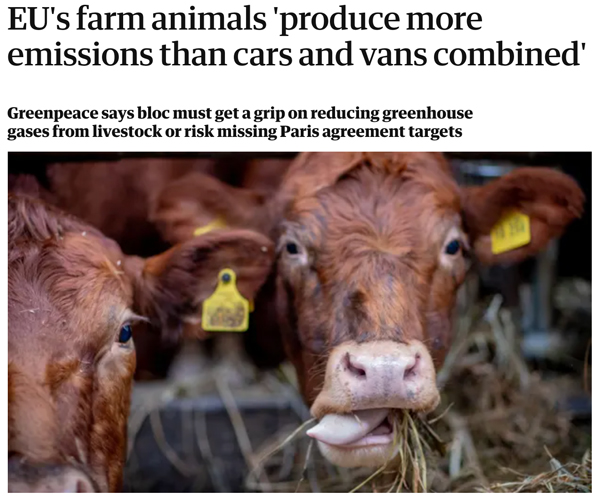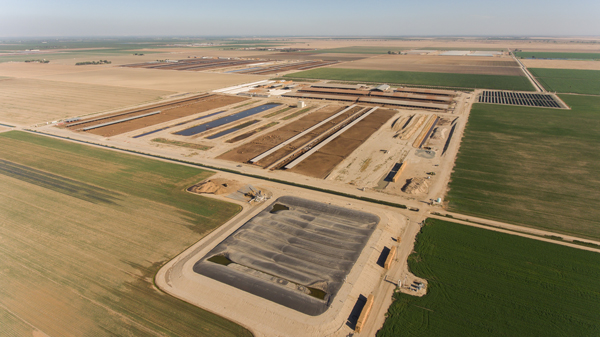
THREAD: Could eliminating meat from our diet be a simple solution to curbing our climate crisis? You may have heard the saying, ‘nothing good comes easy’. Well, yes. It’s not that simple – #climatechange has no easy solutions. My new blog explains. bit.ly/ghggurublog1204 1/
I want to start by stressing this: I have no beef with what you eat, whether that be a plant-based burger, one grown in a lab, or the old-fashioned kind from a cow – because that is your choice. 2/
As a scientist at the intersection of livestock & the environment, I work to reduce the environmental impact of animal protein for those who choose to eat it. It’s my duty to provide you with facts & resources around this subject so you can make the right decisions for you. 3/
That said, I don’t get tired of calling out anti-meat rhetoric that uses climate justification as a selling point, but lacks context and science. We have 10 billion people to feed by 2050 and our planet is warming at an alarming rate. There's no time for distractions. 4/
And the ‘cut meat, save the planet’ messaging is just that. A distraction from the real issue. Did you know, if Americans eliminated meat from their diet GHG emissions would drop by only 2.6%? An honorable effort but we’re in an emergency, folks. More: pnas.org/content/114/48… 5/
Moving to a plant-based diet would mean millions of people around the globe would lack essential nutrients. This would negatively impact children in particular. This article by @ucdavisCAES explains more: caes.ucdavis.edu/news/helping-f… 6/
Additionally – and this is CRUCIAL – emissions from cattle do not warm the planet the same way as emissions from fossil fuels. That’s because cattle are part of the biogenic carbon cycle. This short video breaks this down: 7/
Unlike methane from livestock (which is a flow gas), carbon dioxide from fossil fuel is not part of a carbon cycle. CO2 from fossil fuels accumulates in the atmosphere for an indefinite period of time because it’s a stock gas. And it’s pushed to the limit. 8/
Think of it as a credit card that’s maxed out. We have to stop spending, AND we have to start getting rid of the outstanding balance. Here’s a short video on stock vs flow gas: 9/
And here’s an in-depth explainer that dives into the difference between methane from cattle and methane from fossil fuels: clear.ucdavis.edu/explainers/why… 10/
If you get anything out of this thread and my new blog it should be this: We cannot forsake our efforts to reduce fossil fuel emissions for the sake of methane emissions. 11/
As @UniofOxford prof @climatebook puts it:
“In reality, aerosol-forming emissions, short-lived greenhouse gas emissions (i.e., methane), and CO2 emissions are separate dials, controlling very different aspects of the Earth’s climate future..." 12/
“In reality, aerosol-forming emissions, short-lived greenhouse gas emissions (i.e., methane), and CO2 emissions are separate dials, controlling very different aspects of the Earth’s climate future..." 12/
“… CO2 emissions play a distinguished role, because they ratchet up the Earth’s thermostat. It’s a dial you can turn up, but you can’t turn it back down. CO2 is a genie you can’t put back in the bottle.”
MORE: realclimate.org/index.php/arch… 13/
MORE: realclimate.org/index.php/arch… 13/
I want to express that I value your thoughts and perspective. I choose to publicly share my expertise in hope of sparking meaningful conversations with others, scientists and non-scientists alike. I encourage conversation but will shut down trolling. Let’s keep it respectful. 14/
The focus around eliminating animal agriculture is taking away from the energy that should be going into reducing the fossil fuel’s impact on the environment. The solutions are not easy. It will be challenging, but we can do it. Here’s my blog again: bit.ly/ghggurublog1204 15/15
• • •
Missing some Tweet in this thread? You can try to
force a refresh








